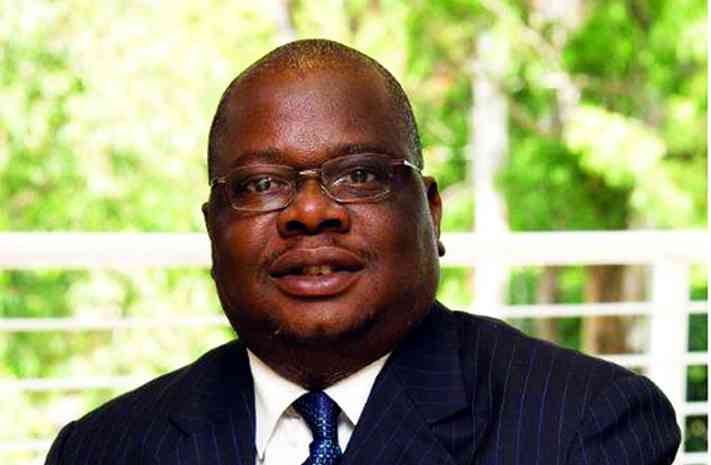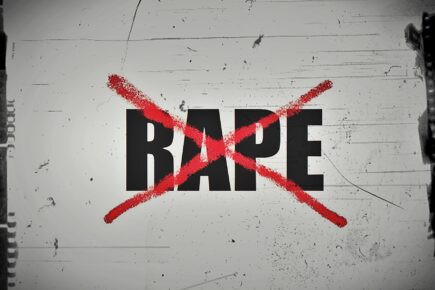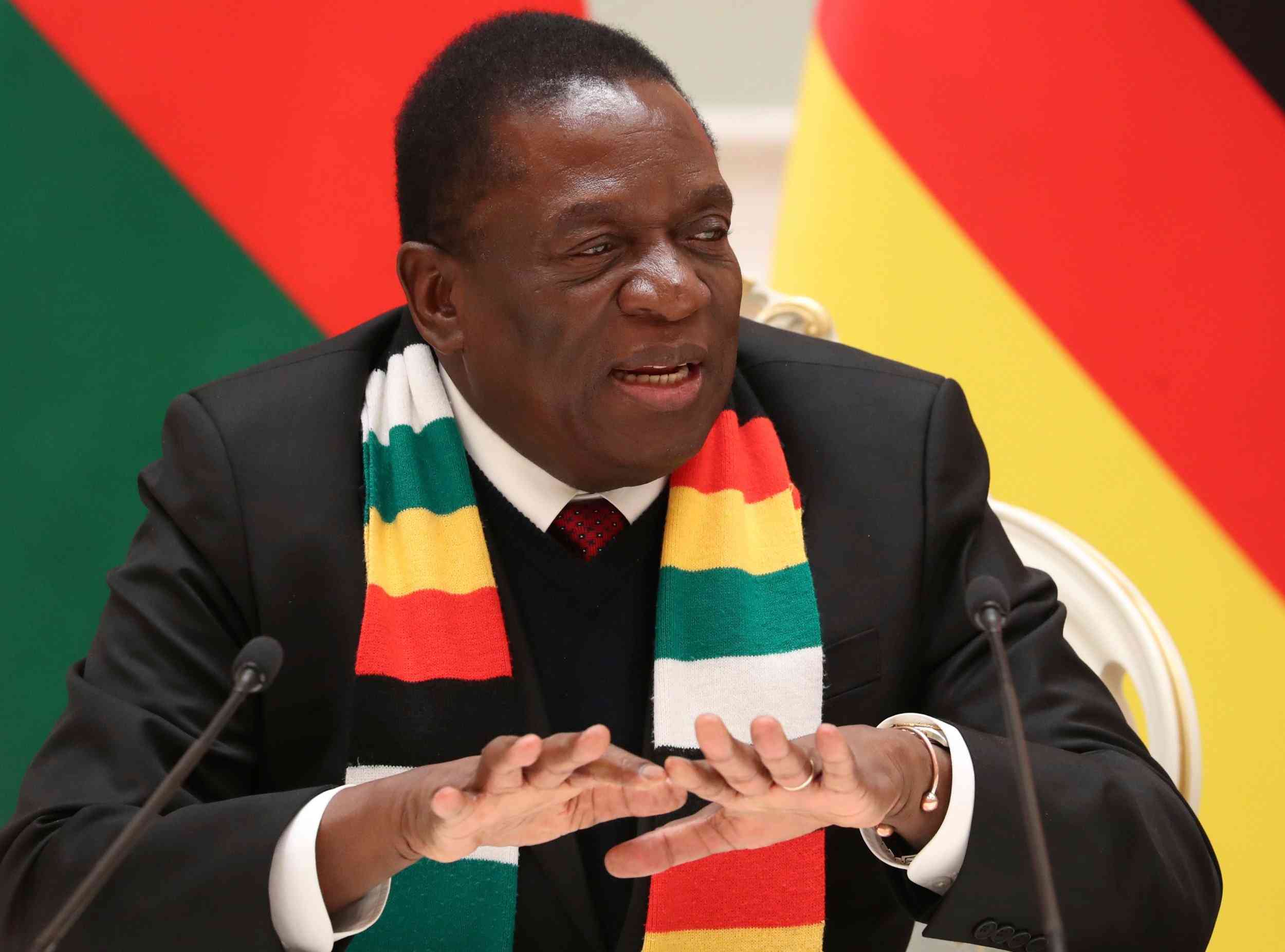
First Mutual Holdings Group chief executive officer Douglas Hoto says the building of infrastructure around learning institutions will help develop Zimbabwe’s tertiary education sector.
Hoto (DM) whose company is involved in the construction of new hostels at Chinhoyi University of Technology, told Alpha Media Holdings chairman Trevor Ncube on the platform In Conversation with Trevor that “building infrastructure around the education system, schools, colleges and universities” was the way to go.
He also spoke at length about his passion for teaching mathematics and improving access to education in Zimbabwe.
TN: Douglas, welcome to In Conversation With Trevor.
DH: Thank you.
TN: Congratulations on your appointment onto the board of Rainbow Tourism Group, congratulation for that.
DH: Thank you very much.
TN: Douglas you started off as a teacher. I am fascinated by that, and I see that you still have a passion for education.
- In Conversation with Trevor: Chisamba: Let’s be proud of ourselves
- In Conversation with Trevor: ‘I tried to change Zanu PF from within’ – Margaret Dongo
- In Conversation with Trevor : How car crash changed my life
- In Conversation With Trevor: ‘We lost our humanity’
Keep Reading
Talk to me about your journey as a teacher and the passion that you have for education.
DH: Thank you Trevor. I have always enjoyed teaching, especially mathematics.
My original training was in mathematics.
I spent three years at university studying mathematics, and in my final year I was actually a tutor at the university itself.
So that is when I started teaching.
TN: Right.
DH: Then I worked at a school.
TN: Which school was that?
DH: Hippo Valley in Chiredzi which was introducing ‘A’ Level mathematics for the first time and everybody believed it was very difficult.
So I went there and simplified that and within the 13 months I stayed there we managed to get some students to write Advanced Level and come up with A’s in mathematics.
TN: When did you discover that you were good at mathematics?
DH: Well right from the beginning, from Form 1, down there in Mberengwa. We went into Form 1 just...
TN: Which school did you go to in Mberengwa?
DH: It is a Lutheran school called Musume.
During the ceasefire leading to the independence of this country I went there and we were given a mathematics test in the first term and I was surprised that I had scored more than 90%, but that was always my interest.
Since then I have excelled in mathematics through to high school at Goromonzi to the university, and eventually to do our Actuarial science.
TN: What is the trick? I mean I like the fact that they sent you to teach mathematics when they were introducing mathematics for ‘A’ Level, and you were able to have kids sit down for their exams.
What is the trick do you think in teaching mathematics?
I must raise my finger, I am terrible with numbers, so when I look at people like you I am amazed.
What is the trick in getting people to embrace mathematics?
DH: The trick is to keep it simple. Many students have a phobia against mathematics.
TN: I have a phobia.
DH: This is because they are told that it is difficult, but if you start at the right time like Form 1 especially, and the concepts are understood, you build one on top of them until you arrive at the complications that you find in university and beyond.
So it is to make it simple from the beginning.
TN: Is it Form one? You cannot begin lower than that?
DH: You could even go into primary school, but today the difficulty is that the primary school teachers are not specialists.
TN: I see. They are all over.
DH: They teach all the subjects, so I would say that the right level to start is at the Form 1 level.
TN: Okay. You don’t think there’s a case for having specialist teachers for mathematics at a lower age?
DH: I think it could be there. You would recall that in the old days when there were standards, standard four, five and six would give subject teachers, but it was in primary school so I think there could be a case for that.
TN: There could be a case for that.
DH: The way we are structured now is that our primary schools do not have that, but perhaps you could have a resource teacher for subjects, so that they can do the first lessons and introduce the concepts to all pupils in a simplified way.
TN: How do you deal with the phobia? People like myself who are terrified and I think societal pressure: mathematics is difficult, science is difficult.
How do you think we can we can get rid of that?
DH: I think we need to make it simple, encourage especially the slow ones, to succeed in small tasks and then build incrementally.
So, what you do is, when I went to teach Form 1, I got the worst class, I requested for it from the headmaster and he agreed.
TN: Why?
DH: That was because during my university days we were amazed at why people thought mathematics was so difficult, but the professor told us that you needed to understand it from the very basics.
So, in that Form 3d, which was where the students didn’t want to learn anything, we were all very keen to learn mathematics .
Then I formed the maths club with them and we were doing simple exercises until they started believing that it is not hard to do mathematics.
TN: Your passion for education, I know right now you are involved with communities.
First of all talk to us about your involvement with communities around education? What projects are you into and I want to understand what drives that passion.
DH: Okay. I think my passion for education comes from the fact that as we grew up in the Rhodesian times and independence, for many families a good education was a straight way out of the poverty trap.
It was a no-brainer.
TN: Absolutely.
DH: Our parents sold their cows to send children to mission schools, and once that succeeded the family moved to the next level.
The second thing is that in communities that is the best way of breaking the poverty chain.
For example, I have employees, my domestic workers and others whose kids I have sent to school, and some of them are now holders of university degrees and they are changing from the job that their parents were doing to a totally new life and it is very inspiring to do that. However, the missionaries had an even bigger impact on me.
When I went to the mission school, soon after the end of the war, they were so many orphaned children, I was one of them, and the missionaries had a programmes to ensure that even children whose parents died during the war had to receive an education, and they put together funding models for that, and that really inspired me.
TN: So you were orphaned?
DH: Yes during the war.
TN: How old were you?
DH: Twelve.
TN: What effect has that had on you?
DH: I became very close to my mother, because she looked after me like a mother and father.
TN: Right now the education programmes that you are working on, I know you have got big projects that you are working on. Could you just outline them for us?
DH: Yes. It varies from community level, near our village where we are supporting the primary school with the actual refurbishment of the schools, the secondary school with the provision of internet, printers, computers, and in the university where I am now the chairman of the University Council...
TN: Yes.
DH: ...dealing with and creating the manpower for the country and the introduction of the Education 5.0, which is the best education model, geared to produce graduates who can produce things for the country.
TN: Rather than just academic?
DH: Yes, and that’s very interesting.
I also participate in my job as a funder for the educational infrastructure at First Mutual Group level, we are involved in right now breaking ground at the Chinhoyi University Of Technology, for a house for students which will house about 300 to 400 students, and we believe that is the way to go, building infrastructure around the education system, schools, colleges and universities.
I also got personally involved in teaching at the university for some time at the National University of Science and Technology, where I was teaching actuarial science on a part time basis as a volunteer.
TN: Right. One question that I really said to myself, Douglas I need to ask him this question. How did you decide to study actuary?
I think actuaries for me are like um, what do you call them? Nuclear physicists, astrophysicists, very rare to come across. Where did you get the inspiration to study actuary?
DH: Yeah that’s a good one.
Actually when I went to the university I wanted to be a professor of mathematics, not actuarial science.
So we got to know about actuarial science through Old Mutual who were sponsoring the Mathematics Olympiad whilst we were in Form 6.
Then they came to university to offer scholarships, which I declined actually myself.
TN: Why?
DH: Because I did not want to be an actuary!
TN: Hahahaha.
DH: I wanted to study mathematics, but a friend of mine, who is now late, took the scholarship and then went to Old Mutual.
He said to me this sounds interesting you might like it.
So, when I was now a staff development fellow at the University of Zimbabwe, waiting to go and do my further studies, I then applied to join Old Mutual and a totally new journey began.
TN: So, you didn’t pursue your academic ambitions that you had to be a professor?
DH: I changed course and moved into actuarial science.
TN: Talk to me about that change of course because there’s a lot of young people watching you right now.
DH: Yes.
TN: Those who face that dilemma of changing courses and sometimes being forced to change courses. I will tell you my story.
When I went to the University of Zimbabwe I was so determined I wanted to study law.
I missed law by one point, and I had sleepless nights because all I wanted to do was to be a lawyer.
How do you deal with that? Having to make a sudden choice?
DH: It is not easy. For me, actually initially I was fairly confused about it, I was of two minds for a while because I still wanted to pursue my PhD in mathematics, but at the same time I was interested in what I was discovering about the actuarial science and learning about business.
In my whole degree I had never really learned how to apply mathematics to business, but when I went to Old Mutual I got very fascinated, so very soon after that there was also the challenge that the actuarial department recognised passing examinations as a way of going up the career so I just took that challenge and everything changed.
TN: Right. What were you discovering about actuarial sciences that made you say this is what I want to do?
DH: For example, when we would always buy insurance we did not know how the premium was determined, how the money works when it is collected, what do you do with it?
So we started learning all those and putting models to it and doing the calculations, proving how it was either not enough or enough and that got very fascinating.
TN: There is a lesson there for me, what then do you say to young people who are watching you right now facing that dilemma of what to choose?
What influenced you in terms of your decision-making process?
DH: I would say that the most important thing is for them to do what they have passion for in the first place.
If you cannot do that, find something that you really like, rather than something that society thinks you should do, because in a number of cases even at universities, we are testing that now.
Where the entry into the university is just about the points you scored, because we found out that maybe someone like you would have done very well as a lawyer, the one point difference should not be so important.
That is why the universities are now saying interview the people, do not just look at the points that they scored, there might be something else that is in there which is not to do with the points.










